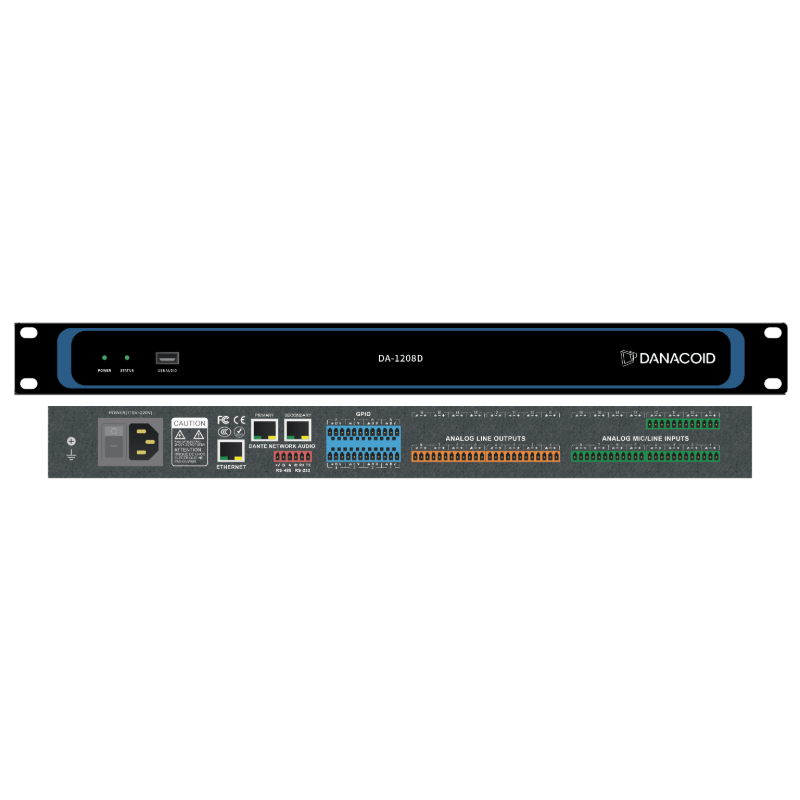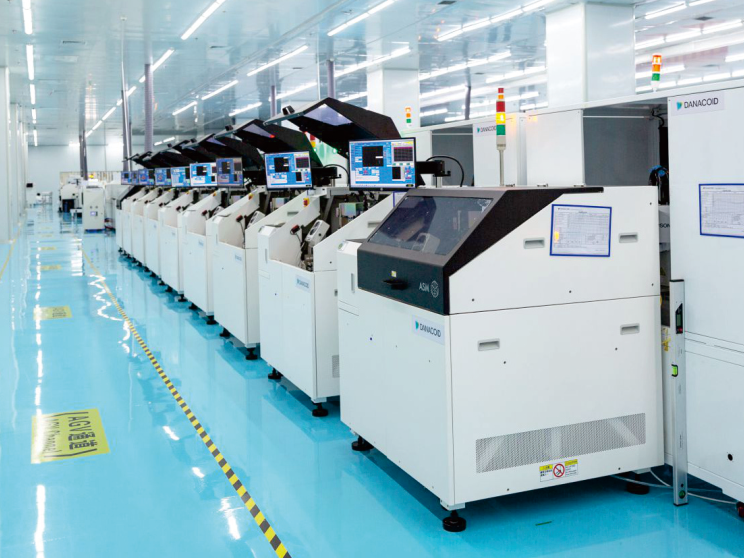多言語音声システムの開発は、革新的な解決策を必要とする複雑な課題を提示します ソリューション 各言語は独自の音声的、構文的、意味的な複雑さを持っており、この作業は非常に要求されます。これらのシステムは、多様な言語コミュニティ間のコミュニケーションのギャップを埋めることによって、包括性を促進する上で重要な役割を果たします。また、音声ベースの技術に依存する個人にとってのアクセシビリティを向上させます。このようなシステムの開発におけるこれらの課題に対処することは、グローバルなコミュニケーションがよりシームレスで公平になることを保証し、すべての言語的背景を持つユーザーがデジタル世界に参加できるようにします。
多言語音声システムの開発におけるデータの課題
データの多様性と表現
世界中の言語は膨大な多様性を示しています。各言語には独自の音声的、統語的、意味的特徴があります。多言語音声システムを開発するには、この多様性を反映したデータセットが必要です。適切な表現がなければ、これらのシステムは特定の言語を正確に理解したり処理したりできない可能性があります。例えば、マンダリンのようなトーン言語は、英語のような非トーン言語とは異なる取り扱いが求められます。同様に、フィンランド語のような複雑な文法構造を持つ言語は、追加の課題をもたらします。
これらの問題に対処するために、開発者はデータセットに幅広い話者を含めることを確保しなければなりません。これには、年齢、性別、地域のアクセントのバリエーションが含まれます。限られたまたは均質なデータで訓練されたシステムは、実際のシナリオでうまく機能するのに苦労するかもしれません。包括的な表現は、システムが多様な言語的入力を効果的に処理する能力を向上させるのに役立ちます。
低リソース言語におけるデータの不足
多くの言語は十分なデジタルリソースを欠いています。これらのリソースが少ない言語は、トレーニング用の音声録音、転写、または注釈付きデータセットが限られていることがよくあります。この不足は、多言語音声システムの開発において重大な課題を生み出します。たとえば、英語やスペイン語のような広く話されている言語は豊富なデータを持っていますが、先住民や少数言語はしばしば過小評価されています。
開発者は、これらの言語のデータを収集し、キュレーションする際に困難に直面しています。リソースが少ない言語の話者は遠隔地に住んでいることが多く、データ収集が物流的に困難になります。さらに、一部の言語には標準化された書き方がないため、転写作業が複雑になります。これらの障害を克服するには、地元のコミュニティや言語学者との協力が必要であり、真実で多様なデータセットを収集する必要があります。
データの注釈と品質の確保
高品質なデータアノテーションは、効果的な多言語音声システムのトレーニングにおいて重要な役割を果たします。アノテーションされたデータは、機械学習モデルが音声を正確に認識し処理するための基盤を提供します。しかし、一貫性と正確性のあるアノテーションを確保することは、独自の課題を伴います。誤アノテーションや不一致は、音声認識や合成におけるエラーを引き起こす可能性があります。
多言語システムの場合、アノテーターは対象言語に関する専門知識を持っている必要があります。彼らは、トーン、ストレス、発音などの言語的ニュアンスを理解する必要があります。この要件により、アノテーションプロセスは時間がかかり、リソースを多く消費します。さらに、言語の数が増えるにつれて、大規模データセット全体での品質を維持することがますます難しくなります。
これらの課題に対処するために、開発者はしばしば注釈を支援する自動化ツールに依存します。しかし、これらのツールは人間の話し言葉の複雑さを常に捉えるわけではありません。注釈データの信頼性を確保するためには、定期的な品質チェックと手動レビューが依然として不可欠です。
多言語音声システムの開発における言語的課題
アクセントと方言への対処
アクセントと方言は、多言語音声システムに大きな複雑さをもたらします。各言語にはしばしば多くの地域的なバリエーションがあり、発音、語彙、イントネーションに違いがあります。例えば、アメリカで話される英語は、イギリスやオーストラリアの英語とは大きく異なります。これらのバリエーションは音声認識モデルを混乱させ、精度の低下を引き起こす可能性があります。
この問題に対処するために、開発者はさまざまな地域の話者を含む多様なデータセットでシステムを訓練する必要があります。これにより、システムは異なるアクセントを効果的に認識し処理できるようになります。さらに、言語の専門家はこれらの変異を特定し分類する上で重要な役割を果たします。彼らの洞察は、地域の話し方の微妙な違いに対応するためにモデルを洗練させるのに役立ちます。この努力がなければ、システムは独特のアクセントや方言で話すユーザーに対応できない可能性があります。
スピーチにおけるコードスイッチングの取り扱い
コードスイッチングは、話者が単一の会話や単一の文の中で二つ以上の言語を交互に使用することが起こる現象です。この現象は多言語コミュニティで一般的であり、スピーチシステムの開発において独自の課題を提示します。たとえば、話者がスペイン語で文を始め、その途中で英語に切り替えることがあります。従来の音声認識モデルは、そのような移行をスムーズに処理するのに苦労します。
開発者は、複数の言語を同時に検出し処理できるシステムを設計する必要があります。これには、言語の境界を特定し、リアルタイムで適応できる高度なアルゴリズムが必要です。トレーニングデータには、システムのパフォーマンスを向上させるためにコードスイッチングの例も含める必要があります。バイリンガルまたはマルチリンガルのスピーチパターンに精通した言語学者との協力は、システムがコードスイッチングを効果的に管理する能力をさらに向上させることができます。
音声的および文法的な違いの管理
言語は音声的および文法的構造において大きく異なります。中国語のような言語は、意味を伝えるためにトーンの変化に依存しますが、英語のような言語はそうではありません。同様に、文法ルールも大きく異なり、いくつかの言語は複雑な屈折システムを使用し、他の言語は語順に依存しています。これらの違いは、多様な言語的入力を処理できる多言語スピーチシステムの開発において課題を生み出します。
これらの課題を克服するために、開発者は各言語の独自の特性を考慮したモデルを構築する必要があります。音声の多様性は、システムが音の微妙な変化を認識することを要求し、文法の違いは文の構造を処理する柔軟性を求めます。言語学の研究は、これらの複雑さに関する貴重な洞察を提供し、開発者がより堅牢で適応性のあるシステムを作成するのを可能にします。これらの問題に対処することで、多言語音声システムはさまざまな言語においてより高い精度と使いやすさを達成できます。
多言語音声システム開発における技術的課題
処理の複雑さを克服する
多言語音声システムは、複数の言語からの膨大なデータを処理しなければなりません。各言語は独自の音声的、構文的、意味的特徴を持っています。これらの違いはシステムの計算複雑性を増加させます。例えば、マンダリンのようなトーン言語は、ドイツ語のような非トーン言語とは異なる処理技術を必要とします。さらに、システムはアクセント、方言、話し方のバリエーションを処理する必要があります。
開発者は効率のためにアルゴリズムを最適化することでこの課題に対処しています。ニューラルネットワークなどの高度な機械学習技術は、複雑性の管理に役立ちます。これらのモデルは、言語データをより効果的に分析し処理します。しかし、リアルタイム性能を達成することは依然として大きな障害です。システムは、高い精度を維持しながら音声入力を迅速に処理する必要があります。速度と精度のバランスを取るには、アルゴリズムとハードウェアの継続的な改良が必要です。
リソース配分のバランス
多言語音声システムは、かなりの計算リソースを必要とします。複数の言語のモデルをトレーニングするには、広範な処理能力とメモリが必要です。英語やスペイン語などの高リソース言語は、しばしばリソースの配分を支配します。この不均衡により、低リソース言語はシステム内で過小評価されることになります。
この問題に対処するために、開発者はリソース効率の良い方法を優先します。例えば、転移学習は、高リソース言語でトレーニングされたモデルが低リソース言語に適応することを可能にします。このアプローチは、大規模なデータセットや計算能力の必要性を減少させます。さらに、開発者はモデル圧縮のような技術を使用して、リソース消費を最小限に抑えます。これらの戦略により、システムはパフォーマンスを損なうことなく、幅広い言語をサポートすることができます。
言語間でのモデルの一般化を確保する
多言語音声システムは、多様な言語にわたって一般化する必要があります。各言語には、システムの適応性に挑戦を与える独自の特性があります。例えば、いくつかの言語は意味を伝えるために文脈に大きく依存する一方で、他の言語は厳格な文法ルールを使用します。ある言語でうまく機能するシステムは、別の言語では苦労するかもしれません。
開発者は、柔軟なモデルを設計することで一般化を強化します。これらのモデルは、言語間で共有される言語的特徴を取り入れています。例えば、言語間の音声的類似性は、システムのトレーニングプロセスを導くことができます。開発者はまた、多様なデータセットを含めてモデルをさまざまな言語的パターンにさらします。このアプローチは、新しい言語やシナリオを効果的に処理するシステムの能力を向上させます。
「多言語音声システムの開発における課題は、革新的な解決策の必要性を浮き彫りにしています」と、この分野の専門家は指摘しています。これらの技術的な障害に対処することで、音声システムがより包括的でアクセスしやすくなることが保証されます。
多言語音声システムの開発における文化的および倫理的課題
言語使用における文化的ニュアンスの認識
言語は人々のコミュニケーションの仕方を形作る文化的な重要性を持っています。多言語音声システムは、効果的な相互作用を確保するために、これらの文化的ニュアンスを考慮する必要があります。たとえば、いくつかの言語では、文脈や話者間の関係に応じて、形式的な言葉遣いと非形式的な言葉遣いを使い分けます。これらの違いを無視すると、誤解やさらには不快感を引き起こす可能性があります。
開発者は文化的規範を研究し、それをシステム設計に統合する必要があります。これには、各言語特有の慣用表現、ジェスチャー、トーンの変化を理解することが含まれます。たとえば、ある文化で礼儀正しさを伝えるフレーズが、別の文化ではあまりにもカジュアルに見えることがあります。文化的な洞察を取り入れることで、開発者は世界中のユーザーの多様性を尊重し反映するシステムを作成することができます。
さらに、文化的感受性は、システムが敏感なトピックを扱う方法にも及びます。特定の言葉やフレーズは、文化によって異なる意味合いを持つ場合があります。開発者は、スピーチシステムがユーザーの信頼を損なう可能性のある誤解を避けるようにする必要があります。文化の専門家や言語学者と協力することで、多様なオーディエンスに対応するシステムの開発におけるこれらの課題に対処するのに役立ちます。
倫理的なAI開発と公平性
倫理的な考慮は、多言語スピーチシステムの開発において重要な役割を果たします。トレーニングデータのバイアスは、一つの言語やアクセントを他よりも優遇するような不公平な結果をもたらす可能性があります。例えば、主に英語話者を対象にトレーニングされたシステムは、非ネイティブのアクセントを正確に認識するのに苦労するかもしれません。このバイアスは、ユーザーが技術の恩恵を十分に受けられないことを意味します。
公平性を促進するために、開発者は多様でバランスの取れたデータセットを優先する必要があります。さまざまな言語的および人口統計的背景を持つ話者を含めることで、言語間での公平なパフォーマンスが確保されます。トレーニングデータの定期的な監査は、潜在的なバイアスを特定し、軽減するのに役立ちます。開発プロセスの透明性も、システムの公平性に対するユーザーの信頼を築きます。
倫理的なAI開発は、ユーザーのプライバシーを尊重することも含まれます。音声システムはしばしば、音声録音などの敏感な個人情報を処理します。開発者は、このデータを保護するために堅牢なセキュリティ対策を実施する必要があります。明確なコミュニケーション について データ使用ポリシーは信頼を育み、ユーザーが技術に関与することを促します。
規制遵守のナビゲーション
規制の枠組みは、異なる地域における多言語音声システムの使用を管理しています。これらの規制は、データプライバシー、アクセシビリティ、倫理的なAIの実践などの問題に対処しています。開発者は、コンプライアンスを確保し、潜在的な罰則を回避するために、これらの法的要件を考慮しなければなりません。
例えば、ヨーロッパの一般データ保護規則(GDPR)などのデータ保護法は、ユーザーデータの取り扱いに厳格なガイドラインを課しています。開発者は、音声録音の匿名化やユーザーの同意を得るなど、これらの規制に沿ったシステムを設計しなければなりません。アメリカ障害者法(ADA)に示されているようなアクセシビリティ基準は、障害を持つユーザーに対応するシステムを要求しています。
進化する規制について情報を得ることは、開発者にとって不可欠です。法的専門家と協力することで、システムが地域の要件を満たすことを確実にします。積極的なコンプライアンスは、法的な課題を回避するだけでなく、倫理的で責任ある開発へのコミットメントを示します。
「多言語音声システムの開発における文化的および倫理的課題は、慎重な考慮を必要とする」と業界のリーダーたちが強調しています。これらの課題に対処することで、信頼性、包括性、そしてグローバルな使いやすさが促進されます。
多言語音声システムの開発における課題は、この分野の複雑な性質を浮き彫りにしています。データの多様性から文化的ニュアンスに至るまで、各障害は革新的なアプローチを必要とします。開発者は、包括的な解決策を作成するために、言語学者、エンジニア、文化の専門家との協力を優先する必要があります。これらのシステムを進化させるには、すべてのユーザーに対する包括性とアクセシビリティへのコミットメントが必要です。継続的な研究と開発が、より堅牢な技術への道を切り開くでしょう。これらの課題に対処することで、業界はグローバルなコミュニケーションを促進し、多様な言語コミュニティを力づけることができます。









